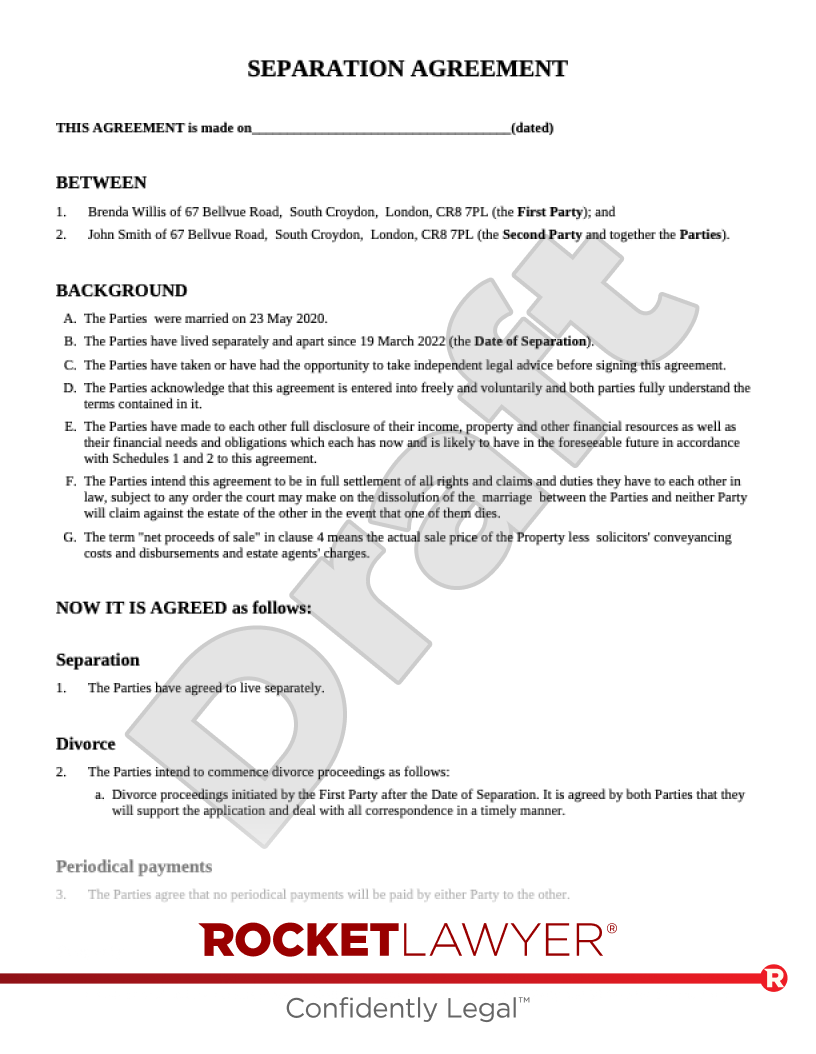No-fault divorce
Under the no-fault divorce system introduced in 2022, applicants do not need to meet one of the five grounds for divorce, as they did before the change.
Irretrievable breakdown
You can apply for a no-fault divorce (or dissolution) on the sole ground that the marriage or civil partnership has broken down irretrievably.
This means that the partners believe there is no reasonable possibility of them resolving the issues in their partnership and deciding to continue with their marriage (or civil partnership). Irretrievable breakdown can include any of the situations that made up the old grounds for divorce (eg unreasonable behaviour or adultery). It can also include more vague issues, which do not need to be explained in the application form.

For more information, read How to get a divorce or dissolution.
Defending a divorce
Under the no-fault divorce process, divorces can no longer be ‘defended’. This is because there are no allegations to argue against, as the party applying for divorce does not need to make allegations against the other party when they apply (eg by applying based on alleged adultery). Instead, a statement of irretrievable breakdown by a single partner is sufficient grounds for separation.
In other words, no-fault divorce has removed the requirement to prove a ground for divorce and, as a result, doesn’t require one party to argue that the divorce is the other party’s fault.
However, one party can dispute the divorce provided they have legal reasoning (eg one party might live abroad and the courts of England and Wales cannot deal with the application). If a divorce application is disputed, a court hearing will take place requiring the attendance of both parties.
How to apply for divorce or dissolution based on irretrievable breakdown
In practice, the divorcing partners only need to send one online application. This can either be a joint application (ie where both partners apply together) or a sole application (ie where one partner applies on their own). The applicants must make a statement of irretrievable breakdown. To do this, the applicants must tick the relevant box in the divorce application form (Form D8 or the online equivalent) confirming that their marriage or civil partnership has broken down irretrievably. No other evidence is required to prove to the courts that an irretrievable breakdown has occurred.
For more information on how to apply for divorce, read The divorce process.
The old grounds for divorce
Before no-fault divorce was introduced in April 2022, the one of the five grounds for divorce had to be relied on to apply for a divorce. The possible grounds were:
-
adultery – where the spouse had sexual intercourse with someone else of the opposite sex
-
unreasonable behaviour – this could include serious accusations including domestic violence or drunkenness, as well as rather vague issues such as lack of support in maintaining a household
-
living apart for more than 2 years (with agreement)
-
living apart for more than 5 years (without agreement)
-
desertion – if the spouse left, without agreement or a good reason and with the intention of ending the relationship
In practice, divorcing couples who both wanted to get divorced would often choose 'unreasonable behaviour' as a catch-all ground. In reality, there was a very low standard for what qualified as unreasonable behaviour.




